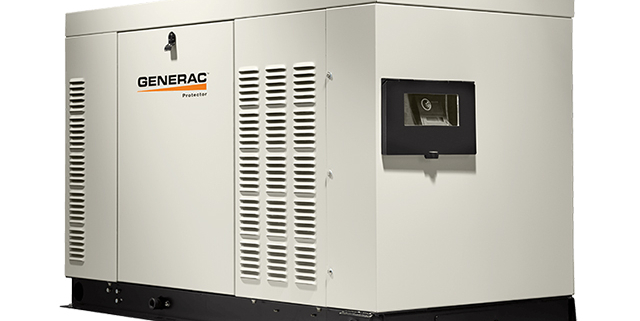Handy Tips to Help You Make Better Use of Your Generator
Generators are great to have. They’re the perfect backup plan for an emergency, and while they can be expensive, it’s a small price to pay when compared to the damage a blackout could cause. Whether it’s mission-critical hardware that you need to keep running even through a blizzard, or medical equipment that keeps you safe, it’s critical to keep your house powered at all times to stay secure and free from harm.
However, because we don’t typically use our generators all too often, it can be challenging to use them when we need them. We might not know how to turn our generator on, we might not be sure how to use it optimally, and we might not even know where the fuel goes. All of these things are incredibly important when it comes to using your generator, but we’ve also prepared a few useful tips that will ensure that you get the most out of your generator when disaster strikes.
1. If you haven’t already, consider investing in a standby generator
We believe that standby generators are far sturdier than portable generators, assuming you can afford one. Yes, it’s stationary, but it’s also able to automatically kick on when it detects that your power is out. Plus, these generators are protected from the elements, and they boast much better power generation and efficiency. These generators are connected directly into your electrical grid and need to be installed by a professional. However, if you consider how much more security it offers (even after you factor in the price of a standby generator) you’ll see that it’s an investment that is well worth the money.
2. Keep emergency generators away from your home
Generators are great to have around but do keep in mind that when they’re operating, they spit out fumes and nasty gases like carbon monoxide. This carbon monoxide can often give you headaches, make you drowsy and even outright knock you unconscious. It’s easy to avoid. You need to keep your generator away from you, so the fumes don’t circulate your home. Try and keep the generator as far as possible from your home when it’s in use.
3. Servicing your generator is important
The last thing you want is to have a generator fail on you when you need it the most. Unfortunately, generators that don’t get much use or don’t get tested often can have this issue. If your standby generator stops working, it won’t be able to power mission-critical equipment or even give you enough light. As a result, make sure that you service your generator frequently, especially if it’s a standby one. Occasionally, power it on to see if there are any faults. If there are none, then you should be fine.
4. Keep a stockpile of gas cans
If you keep in mind that gas cans are needed to power a generator, then you’ll probably remember to pick up a couple of them when you order or install your generator. Most medium-powered generators can run for a third of the day when fed 5 gallons of gasoline. It might not sound like much, but 8 hours is a lot of time. As a result, make sure you purchase plenty of cans and stockpile them for times of need. Make sure you keep them in a cold, dark and protected area and you’ll be fine.
5. If you’re not using a standby generator, invest in some extension cords
Since we won’t be keeping the generator in your home, it’s essential to get yourself a couple of extension cords to either plug in the generator in your home grid even when it’s outside or to power certain critical appliances. These extension cords need to be incredibly sturdy, which ultimately means they’ll be expensive. This is yet another reason why we’d suggest a standby generator–because you won’t need to buy and store big, bulky extension cords. However, if you don’t have power on a particular part of your home (such as your shed) and need a portable generator, then it’s a good idea to invest in heavy-duty extension cords.
6. Quiet generators cost a premium
Think again if you’re planning to buy a quiet generator. These machines are relatively inefficient because manufacturers put a lot of emphasis on dampening the sound, and they’re also costly. It’s usually not worth the money when considering cheaper alternatives. Do keep in mind that many people will run their generators outdoors, effectively eliminating the problem of noise.
7. Consider what generator you need
If you’re merely powering a couple of things, then it’s unlikely that you’ll need a large generator. However, if you have mission-critical data because you work from home, then it’s crucial that you get yourself a more massive generator to keep the devices powered even through severe weather. High-quality generators will also be kinder to your appliances, whereas some low-quality generators could end up damaging the charging ports or even frying some of your devices like laptops which are sensitive to electrical surges. In short, always keep the size of your generator in mind when making a purchase.
Hopefully, this article has given you some insight into what it means to own and use a generator.
Dreading the hurricane season and what it can do to the many machines you have at home or the office? Contact us at EmPower Generators to find out what’s the best generator for your needs.






